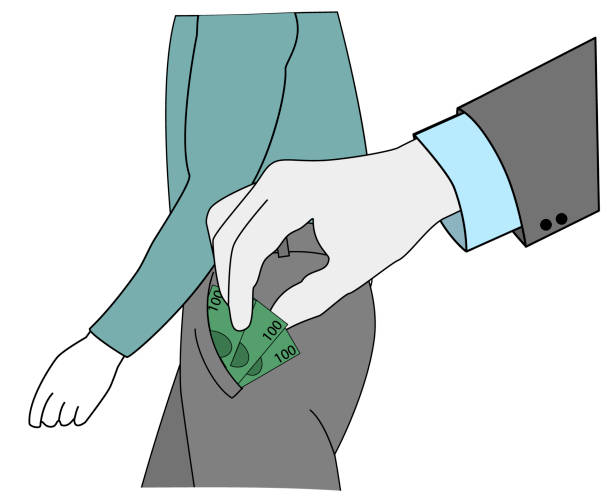Related Articles
Washington state lawmakers are considering Senate Bill 5480, which would make medical debt void and unenforceable if it is reported to a consumer credit reporting agency or credit bureau. The legislation does not erase medical debt entirely, but if a provider or debt collector reports it, the debt can no longer be collected — effectively rewarding non-payment.
While supporters claim this protects consumers from financial hardship, a closer look shows serious unintended consequences that could make health care more expensive for everyone else.
A license to ignore medical bills
This bill creates a perverse incentive — one that encourages people to avoid paying medical bills because the consequences are not the same as with other debts or because their debt will eventually be reported and voided. The bill could cause a significant increase in default rates, as the incentive to pay these debts diminishes.
Additionally, the bill requires healthcare providers to notify patients before service that they cannot enforce collection if the debt is reported to a credit bureau. This means patients will know upfront that they can potentially receive care without all the consequences for non-payment, further encouraging financial irresponsibility. The other problem with this provision is that hospitals don’t always have an opportunity to notify patients of bill particulars before service. Failure to provide the notice also makes any medical debt void and unenforceable. This bill sets traps.
Tuesday, Kelsi Hamilton of the Washington Collectors Association tesitfied at a hearing for SB 5480 saying, “While medical debt often arises from unforeseen circumstances, it does not eliminate the responsibility to fulfill financial obligations.” She continued, “Collection agencies and creditors already face challenges with consumers prioritizing payments only for debts that appear on their credit.”
Shifting costs to everyone else
Medical debt doesn’t just disappear. When one person doesn’t pay, someone else has to cover the cost.
— Higher prices: Hospitals and doctors will likely raise prices on insured patients and those who pay out of pocket to compensate for increased losses.
— Tighter payment requirements: Expect more upfront payments, stricter payment plans and reduced flexibility for patients who need financial assistance.
— Reduced access to care: Healthcare providers may become less willing to treat uninsured or underinsured patients if they believe they will never be paid.
Ironically, a bill designed to protect patients could make it harder for some to receive medical care.
A distorted credit market
Medical debt is a significant factor contributing to personal bankruptcies in the United States. That’s true. But hiding debt from credit reports doesn’t change that. It does mean that more loans will end up in bankruptcy.
Credit scores exist to help lenders evaluate financial responsibility. By preventing medical debt from being reported, Washington’s proposal distorts the accuracy of credit scores, making it harder for lenders to assess risk.
A Stanford University study examined whether eliminating medical debt improved people’s financial situations, and the results were surprising. The study found that paying off medical debt did not significantly improve financial stability or access to credit. As Neale Mahoney, a Stanford economist and co-author of the study, explained, “Many of these people have lots of other financial issues. Removing one red flag just doesn’t make them suddenly turn into a good risk, from a lending perspective.”
This raises a crucial question: If wiping away medical debt doesn’t materially improve people’s financial situations, why pass a law that rewards non-payment while driving up costs for everyone else?
How medical debt is typically handled
Hospitals and providers do not immediately report unpaid bills to credit bureaus. According to the Consumer Financial Protection Bureau (CFPB), nonprofit hospitals are required to offer financial assistance, and most medical providers provide payment plans or work with patients for several months before sending a debt to collections.
A federal rule might already prevent medical debt from appearing on credit reports for at least a year. Stay tuned. This proposal goes even further, saying that if a provider reports the debt, it becomes legally void and the patient never has to pay it. This will encourage more people to avoid paying their medical bills altogether.
Wrong focus in state
If lawmakers truly want to help consumers struggling with medical debt, and help cost-containment in health care for us all, there are far better solutions than erasing financial accountability.
— Enhancing price transparency: Patients should know exactly what they will owe before receiving treatment, when possible.
— Creating more awareness of and exploring possible incentives for Health Savings Accounts (HSAs): Having more people save pre-tax dollars for medical expenses would reduce financial strain without encouraging non-payment.
— Ensuring payment plan options: Rather than wiping out debt, lawmakers could ensure reasonable repayment plans are available.
This piece of legislation is deeply flawed. Effectively encouraging and rewarding non-payment will drive up health care costs, discourage responsible financial behavior and distort credit markets. Instead of eliminating consequences for unpaid bills, lawmakers should focus on policies that improve transparency and affordability without punishing those who do pay.






